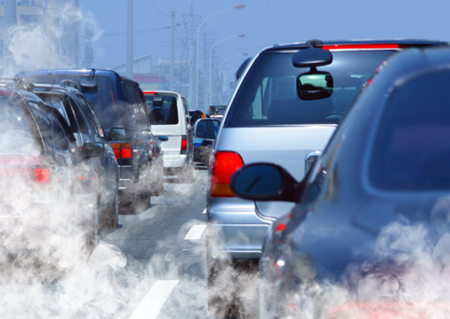
(Photo credit: iStockphotos.com)
The Singapore Budget 2012 was recently announced and it was revealed that the Green Vehicle Rebate (GVR) Scheme will be replaced with a new Carbon Emissions-based Vehicle Scheme (CEVS).
The GVR offers a 40 percent rebate for environmentally-friendly vehicles. The CEVS is a rebate programme that will specifically reward carbon-efficient vehicles--those with low carbon emissions per kilometre travelled--with rebates, while penalising those with higher carbon emissions.
The Special Tax for diesel vehicles that comply with Euro V emissions standards will also be slashed from S$1.25 per cu cm to S$0.40 per cu cm with effect from January 2013, a 70 percent reduction. This is to promote the use of new diesel technologies that are considered cleaner.
The Budget's plan for vehicles is well-intentioned in aiming to reduce carbon emissions as part of wider efforts to mitigate climate change. Euro V standard diesel cars are found to have greater carbon efficiency than even petrol cars.
The new measures correctly put a price on carbon. But simply narrowing the focus to carbon emissions neglects other pollutants such as particulate matter and oxides of nitrogen.
Hazardous tradeoff
Research has shown that an increase in Euro V diesel car usage - that is to say if diesel cars become more common on Singapore roads - will result in modest reductions in carbon emissions but a massive surge in nitrogen oxides and particulate emissions. These have serious implications for Singapore's air quality and the health of people living here.
This is not to say that we should phase diesels out completely. Diesels work best in large and heavy vehicles, and for higher speeds and longer distances. What is needed is the right balance between diesels, petrol and hybrid vehicles that will result in reductions in both carbon and other emissions.
The new measures in the Budget reflect an overwhelming focus on reducing carbon emissions while overlooking the more immediate concerns surrounding other pollutants like particulate matter.
Particulates have become a matter of mounting concern across many Asian cities.
In Beijing and Hong Kong, there have been sharp debates surrounding PM2.5 - fine particles 2.5 micrometres in diameter - especially since both cities have been choking in smog in recent years.
In Singapore, there have been calls for the National Environment Agency to provide more timely data on PM2.5 levels. Even though Singapore has been monitoring PM2.5 levels since 1998, the Pollutant Standards Index currently cites PM10 levels--larger particles 10 micrometres across--regularly.
PM2.5 is considered more hazardous as these finer particles can penetrate the lungs and other organs more deeply when inhaled. The dangers of PM2.5 and other pollutants in the air cannot be overlooked. Hundreds of thousands of deaths in China are caused by air pollution each year.
In fact, in the US, recent studies have shown that exposure to PM2.5 and other pollutants is linked to respiratory ailments, an increased risk of strokes and heart attacks, even cognitive deterioration.
New Delhi has also seen its air quality worsen drastically. This has been blamed in large part on the rise of diesel vehicles on the roads of the Indian capital, a result of government subsidies for diesel fuel.
Pollution surcharge proposal
These findings beg the question: Is it worthwhile to sacrifice clean air purely for the sake of carbon reductions, or can we better utilise technology and policy that reduce both carbon and other emissions"dirty oil" even after the implementation of a local law requiring the switch to cleaner fuels.
But a surcharge was subsequently imposed on fuel oil with high sulphur content, pushing oil firms to switch to cleaner alternatives. Singapore could take a page from New York City's pollution surcharges.
Singapore's prized clean air is well-known and a major draw for residents and foreigners. However, the future of good air quality in the city-state will remain uncertain if there is an overemphasis on carbon emissions alone. The discussion and policies regarding clean air should not simply be restricted to carbon emissions but must also encompass other pollutants like nitrogen oxides and particulate matter.

Nicholas Fang is the Director of the Singapore Institute of International Affairs (SIIA) and Henrick Tsjeng is a researcher. This article was originally published in Today on 24 February 2012, and republished with permission from SIIA, a Supporting Organisation of SIEW 2012.
BY : Nicholas Fang and Henrick Tsjeng, Singapore Institute of International Affairs